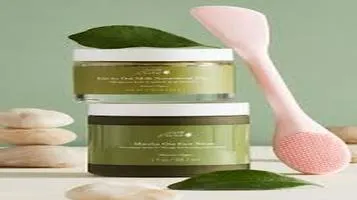Hyaluronic Acid: The Ultimate Hydration Powerhouse - A Comprehensive Review
Hyaluronic acid is a naturally occurring substance in the human body, primarily found in connective tissues, skin, and eyes. Known for its exceptional ability to retain moisture, it plays a crucial role in maintaining skin hydration and elasticity. This hydrophilic compound can hold up to 1,000 times its weight in water, making it a popular ingredient in skincare products aimed at reducing dryness and improving skin texture. In addition to its skincare benefits, hyaluronic acid is used in medical applications, such as treating joint disorders like osteoarthritis through injections, due to its lubricating properties. Its versatility and efficacy in promoting skin health and joint function make it a valuable component in both cosmetic and medical fields.

Hyaluronic acid (HA) has taken the beauty and skincare world by storm in recent years, earning its reputation as a must-have ingredient for anyone serious about achieving and maintaining healthy, hydrated skin. From serums and creams to injectables and supplements, hyaluronic acid is now a ubiquitous presence in the beauty aisles. But what exactly makes this substance so extraordinary? This comprehensive review will explore the science behind hyaluronic acid, its benefits, potential downsides, and why it has become a staple in modern skincare routines.
The Science Behind Hyaluronic Acid
Hyaluronic acid is a naturally occurring glycosaminoglycan, a type of molecule that is found in the connective tissues of the body. It is most abundant in the skin, eyes, and joints, where it plays a crucial role in maintaining moisture and elasticity. The unique ability of hyaluronic acid to retain water—up to 1,000 times its weight—makes it an unparalleled hydrator. This remarkable property is the cornerstone of its effectiveness in skincare.
As we age, our natural production of hyaluronic acid diminishes, leading to drier skin and the formation of fine lines and wrinkles. This decline is compounded by environmental factors such as pollution, UV radiation, and lifestyle choices, which can further deplete HA levels. Hence, replenishing hyaluronic acid through topical applications or other means can help counteract these effects, leading to more youthful and radiant skin.
Benefits of Hyaluronic Acid
Intense Hydration
The primary benefit of hyaluronic acid is its unparalleled ability to provide deep and lasting hydration. By attracting and retaining moisture in the skin, HA helps to keep the skin plump and hydrated. This not only improves the overall appearance of the skin but also strengthens the skin barrier, making it more resilient to environmental aggressors.
Anti-Aging Properties
Hyaluronic acid's hydrating capabilities also make it a powerful anti-aging ingredient. Proper hydration is essential for maintaining skin elasticity and firmness. By plumping up the skin, HA can reduce the appearance of fine lines and wrinkles, giving the skin a smoother, more youthful look.
Versatility
Hyaluronic acid is suitable for all skin types, including sensitive and acne-prone skin. It is non-comedogenic, meaning it won't clog pores, and it is generally well-tolerated by even the most sensitive skin. This makes it a versatile ingredient that can be incorporated into virtually any skincare routine.
Improved Skin Texture
Regular use of hyaluronic acid can lead to improved skin texture. The added moisture helps to smooth out rough patches and can even assist in the healing of minor skin irritations. Some studies suggest that HA can accelerate wound healing and reduce the appearance of scars, making it beneficial for those dealing with acne marks or other skin imperfections.
Potential Downsides
While hyaluronic acid is generally considered safe and effective, there are a few potential downsides to consider. One of the primary concerns is that HA's effectiveness can be influenced by the environment. In extremely dry conditions, hyaluronic acid may draw moisture from the deeper layers of the skin instead of the air, potentially leading to increased dryness. To mitigate this, it is often recommended to use HA products in conjunction with other hydrating ingredients and to apply them in a humid environment.
Another consideration is the molecular size of the hyaluronic acid used in products. High-molecular-weight HA tends to sit on the surface of the skin, providing a temporary plumping effect, while low-molecular-weight HA can penetrate deeper for more long-lasting benefits. Some products combine different molecular weights to offer a balanced approach, but consumers should be aware of what they are purchasing.
Why Hyaluronic Acid is a Skincare Staple
The reasons for hyaluronic acid's popularity are as clear as the molecule itself. Its ability to deliver intense hydration, coupled with its anti-aging properties, makes it an invaluable addition to any skincare routine. Whether you are dealing with dry skin, fine lines, or simply want to maintain a youthful glow, hyaluronic acid offers a multitude of benefits with minimal downsides.
Moreover, its versatility and compatibility with other skincare ingredients make it easy to incorporate into existing routines. Whether used alone in a serum or as part of a more complex formulation, hyaluronic acid works synergistically with other active ingredients to enhance their effectiveness.
Conclusion
Hyaluronic acid has earned its place as a cornerstone in modern skincare. Its exceptional hydrating properties, coupled with its versatility and anti-aging benefits, make it a valuable asset for anyone looking to improve their skin's health and appearance. While there are some considerations to keep in mind, such as environmental factors and molecular size, the benefits far outweigh the potential downsides.
In summary, hyaluronic acid is more than just a trend—it's a scientifically-backed, effective ingredient that delivers on its promises. Whether you're a skincare novice or a seasoned enthusiast, incorporating hyaluronic acid into your routine is a decision your skin will thank you for.






